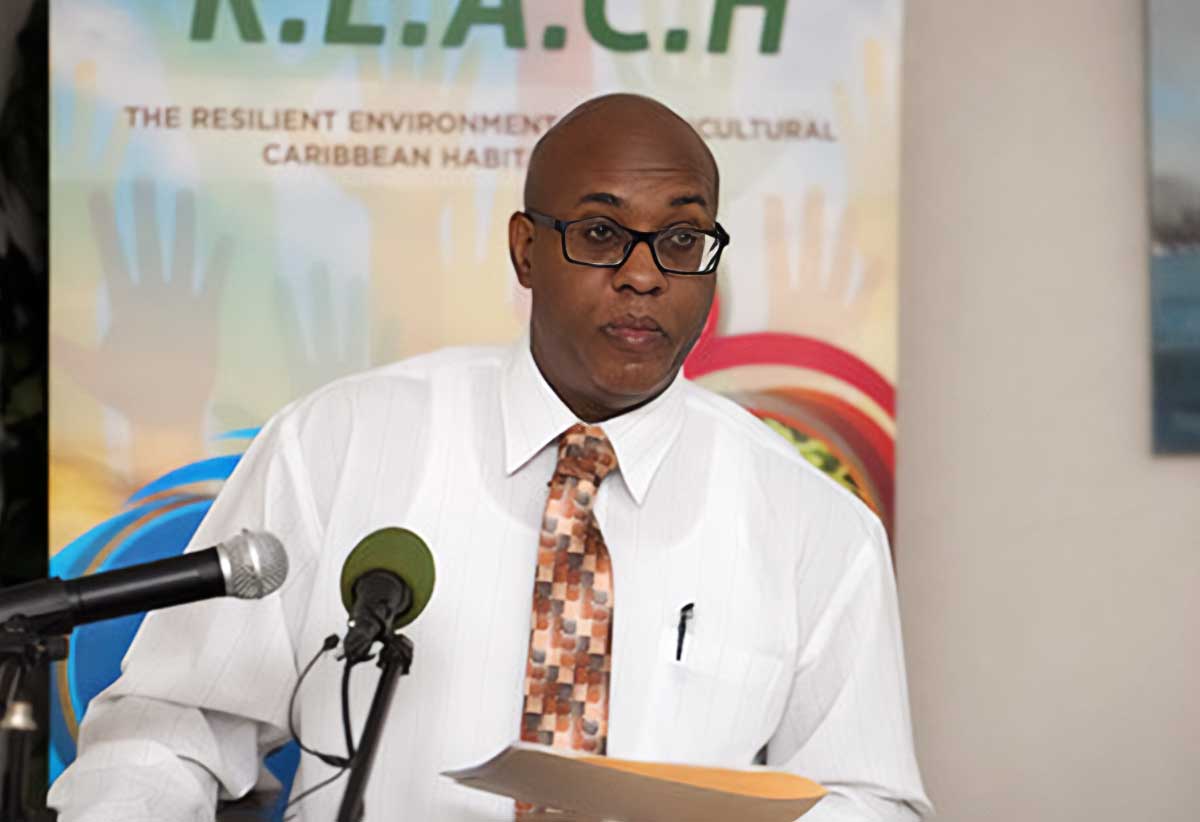
The National Agricultural Diagnostic Facility’s (NADF) postmortem department is nearing completion.
Permanent Secretary in the Ministry of Agriculture Barrymore Felicien indicated this much this week when he appeared on ‘Agriculture on the Move’, a TV programme on the National Television Network (NTN).
According to Felicien, the Ministry is hoping that the facility will become the premiere facility in the region after its completion. Through this department, the NADF will be able to determine an animal’s cause of death.
“We are almost completing the construction of the postmortem building where you will be able to bring in (animals). If you have an animal and you do not know the cause of death (and) it’s strange, we will be able to perform the post mortem on it and tell you what the causes are and if it is a disease that warrants our intervention (in terms of the spread) then the other sections of the ministry will spring into action.
We’re hoping that we outshine some of the labs that (are) already established and we offer the services at a price that is comparable or better than what is on the market,” Felicien said.
He added that the “NADF is a two-storey building. The first storey houses our offices for the vet services, the plant research services, engineering personnel and to some extent the Saint Lucia Bureau of Standards. We have laboratories on the ground floor; the focus of these labs is to offer services to our clients, fishers (and) farmers, in terms of research on diseases, soil profile, soil samples, all of that.”
Whilst NADF can do the latter, Felicien noted that there is a shortage of staff at the facility. The permanent secretary said that positions are not being filled quickly enough even with employment opportunities available.
“The critical component that is missing is the skillsets. Positions are being filled too slowly; we’ve had funding for positions for about two years now and we’re slowly filling those positions. It’s not being filled at a rate where we are comfortable… we would like to have full operations of the lab,” he said.
Felicien touched on a number of topics including some of the Ministry’s recent challenges and how they were able to move forward. Amongst them were outstanding payments, the COVID-19 pandemic, the privatization of the St Lucia Fish Marketing Corporation and the November 6th trough.
Whilst the abovementioned proved to be no easy feat, the Ministry dealt with those issues and is now in a better position, he said.
According to Felicien, “when I came in November 2018 one of my immediate challenges was that I was new to the Ministry obviously. The Deputy Permanent Secretary (DPS) Mr. Augustin Cadette was also leaving so I had a DPS who was relatively new as well… that was challenging, however, we succeeded.”
“In terms of other challenges… you mentioned the move to (the Volet Agriculture Livestock Centre)—we were under pressure as a ministry to move the Beausejour facility to Volet which was not ready,” Felicien said, noting that “we moved to (the) Sir Arthur Lewis farm (in Dennery) to allow for the DSH (Desert Star Holdings) development.”
Felicien said the Ministry had to move swiftly “breaking down everything, moving staff, finding a place for staff, upscaling Sir Arthur, putting in the infrastructure… everything.”
The Ministry of Agriculture has spent approximately 6.5 million dollars to date on the Volet Agricultural Livestock Centre, Felicien said, noting that they are making quite a bit of headway with the project.
“We have put in place the warehouse, the watchman facilities, the administrative building… we have done the fencing, the link road, pig pens (etc.), we have done all of that … we are also in the process of fencing paddocks (and) we want to build some compost sheds before the year closes off,” he said.
“We are almost in the process of moving to Volet. We have electricity, internet (and) we are now testing the water pumps. Once these are okay we are in a position to move from Sir Arthur to Volet. We’re essentially looking at moving to Volet within the next two to three weeks,” he added.
With regards to outstanding payments, Felicien noted that there was a backlog. The Ministry sought to clear its debt and despite the cost, managed to make the necessary payments.
“There were outstanding payments for the meat processing facility even though the meat processing facility was not commissioned. We brought in a company called GDM Lindex and that was in 2015, these payments had to be made. We had contractors who worked on the Augier facility from 2010 and those persons were not paid so we had to deal with all of that,” he said.
“Then in December 2018 when I (came) the usual thing (happened) with the Saint Lucia Fish Marketing Corporation and the Saint Lucia Marketing Board. They (came) to government requesting approximately $900,000 to pay farmers to buy fish (and) produce so that they could see the returns for the Christmas season,” Felicien said adding “immediately we had to get the monies for those persons to do those things.”
Further, “in 2019 the government also decided that some restructuring should take place (at) the St Lucia Marketing Board and they wanted to see the privatization of the St Lucia Fish Marketing Corporation. We had to make the arrangements for the dissolution… the payment of the staff, bringing in a new entity (Lucian Blue Ocean) you can imagine the complexities of those things.”
Whilst some of the challenges seemed insurmountable, Felicien said somehow they managed to overcome them.
He recalled the early effects of the COVID-19 pandemic and how it affected the Ministry, farmers and fishers.
The COVID-19 pandemic also highlighted the importance of food security, he said, and caused many individuals to show a newfound appreciation for agriculture.
“At the end of the tunnel there was that wonderful light but when COVID started it was an absolute nightmare. We had no staff; sometimes it was just myself, the minister, maybe the DPS in an entire ministry and to recover from COVID you need persons to be at work, you need hands on deck.
The challenges for us were getting the farmers back into the field, getting the passes, allowing them to go and water their plants, gain access to markets, allowing the fishers to move from 4:00 a.m. in the morning to go fishing, (etc).,” he said.
“Leading during that time was challenging (but) I think management is much better for it now. We saw a renewed vigour and focus and appreciation for agriculture after COVID because everybody now spoke about food security. I think the nation got a scare at that time,” Felicien observed.
“During COVID we had to conduct what I would say are food audits (to) see what the food availability (was) like and we conducted those successfully. We provided Cabinet with a list of what we had to ensure that we were on the right footing,” he said adding that “2022 was a year of mixed blessings.”





